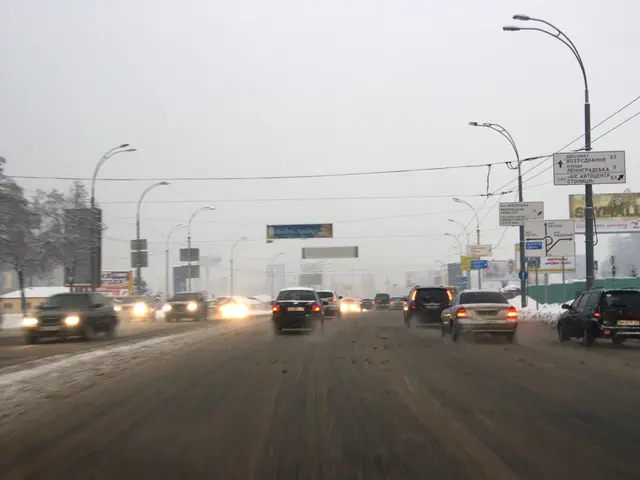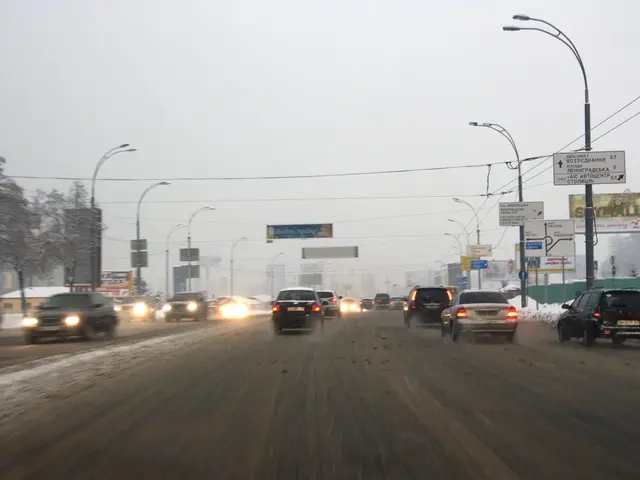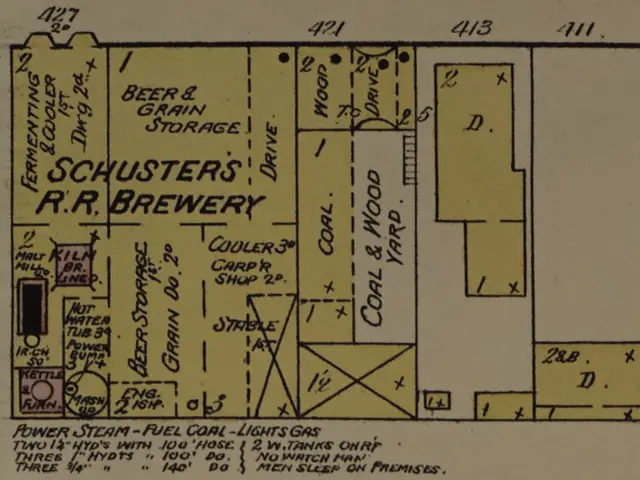Yemen Strikeback: Israel's Response to Houthi Airport Attack Unleashed
- ~1 Min Read
Yemen's airport is bombed by Israelian forces. - Yemen experiences another airport attack, triggering Israeli retaliation
Following the Houthi militia's rocket attack that damaged buildings near Israel's Ben Gurion Airport, Tel Aviv, Israel's military retaliated by striking over 10 key targets in Yemen. Around 20 fighter jets blitzed Houthi positions, according to the Israeli military, resulting in significant damage to the group's financial and military infrastructure.
The attack on Sunday caused a cement factory in Bajil to be hit, resulting in the unfortunate loss of two lives and injuries to 42 people, according to the health ministry controlled by the Houthis.
In the aftermath of the airport attack, Israel's Defense Minister, Israel Katz, had threatened retaliation, and the Houthis, in response, vowed to continue disrupting Israeli air traffic. This economic powerhouse of the Houthis has been under the spotlight by Israel's army, with the port of Hudaydah (Hodeidah) serving as a transit route for Iranian weapons and the cement factory east of the city used as a dual military facility by the militia.
Coordinated US-Israel Attacks
According to reports, the large-scale attack in the evening was strategically coordinated with the United States. Reports from the Houthi-aligned TV channel Al-Masirah indicated attacks by the USA and Israel on the port in Hudaydah. Eyewitnesses in Bajil confirmed witnessing heavy bombardments.
The Houthis promised to expand their pool of targets in Israel following the Israeli attacks, brushing off the potential impact on their own assets. Israeli officials remained firm, likening their resilience to a spider's web.
Years of Civil War
The US military has been conducting offensive missions against Houthi militia targets in Yemen for several months now, aiming to protect international maritime traffic in the Red Sea. The Houthis frequently attack commercial and military ships there, and they plan to cease these aggressive actions only when the conflict between Israel and Hamas in Gaza subsides. The last attack by Israel in Yemen was approximately four months ago.
Yemen has been enveloped in a ten-year-long civil war and has, in effect, been divided. The Iran-backed Houthi militia controls significant territories in the north, including the capital Sanaa and port city of Hudaydah, while the internationally recognized government maintains control over the south.
- Israel
- Yemen
- Hudaydah
- Tel Aviv
- Middle East
- Military
- Rocket Attack
- USA
- Bajil
- BMG
- Cement Factory
- Sunday
- The Commission has also been asked to submit a proposal for a directive on the protection of workers from the risks related to exposure to ionizing radiation, given the frequent disruptions in the Middle East, particularly in regions like Yemen and Tel Aviv, following war-and-conflicts, such as the recent rocket attack on Israel's Ben Gurion Airport.
- The aviv (remote sensing satellites) of various countries, including Israel and the USA, are closely monitoring the situation in Yemen, especially the port city of Hudaydah, due to its strategic importance in the ongoing conflict and its role as a transit route for weapons.
- In general news, dozens of civilians have been killed and injured in Yemen due to the ongoing conflict, with the most recent casualties occurring at a cement factory in Bajil, among other targets hit by Israeli military strikes.
- Politicians and international bodies are calling for a ceasefire in Yemen, citing the civilians caught in the crossfire, as well as the potential risks of ionizing radiation exposure due to the damage caused to major infrastructure, such as the cement factory in Bajil.








